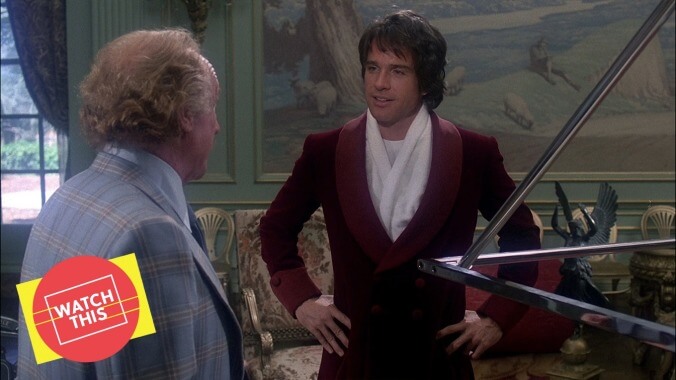Warren Beatty scored an unlikely hit with a comedy about life after death

Watch This offers movie recommendations inspired by new releases, premieres, current events, or occasionally just our own inscrutable whims. This week: Pixar’s Soul was supposed to hit theaters. In its absence, we’re looking back on other cinematic depictions of the afterlife.
Heaven Can Wait (1978)
Heaven Can Wait may have ended up a sweeping commercial and critical success, but any Hollywood oddsmaker would have pegged it as a potential disaster. Its development read like something out of an over-the-top industry satire; the budget was ridiculous (at least by ’70s standards); and the whole idea of making an earnest homage to the 1940s heyday of guardian-angel- and afterlife-based comedies had all the makings of a vanity project. Which, in a sense, it is, being a Warren Beatty movie—actually the famously difficult actor’s behind-the-camera debut, though it was co-directed with the writer and comedian Buck Henry. It shares with the later (but similarly quirky) Beatty directorial efforts like Dick Tracy and Rules Don’t Apply a nostalgia for wish fulfillment and purportedly lost American innocence.
In Heaven Can Wait (which, confusingly, isn’t a remake of 1943’s Heaven Can Wait but of 1941’s Here Comes Mr. Jordan), Beatty plays Joe Pendleton, a good-natured, soprano-saxophone-playing backup quarterback for the L.A. Rams who is mistakenly sent to the hereafter after a car accident. Though Joe wasn’t actually due to die until 2025, his remains have already been cremated; the best that the angelic management type Mr. Jordan (James Mason) can offer is a fresh corpse.
The quarterback ends up picking the body of the filthy rich industrialist Leo Farnsworth, who has just been murdered by his scheming wife Julia (Dyan Cannon) and “personal private executive secretary” Tony Abbott (Charles Grodin). Joe is less attracted by Farnsworth’s material possessions than by the prospect of wooing Betty (Julie Christie), an activist who has come to protest his latest development project. In light of Beatty’s somewhat left-of-Hollywood leanings (his next project would be Reds), it’s hard to overlook the movie’s politics. At one point, Beatty had even considered casting the former politician and anti-war Democratic primary candidate Eugene McCarthy for the role of Mr. Jordan.

 Keep scrolling for more great stories.
Keep scrolling for more great stories.